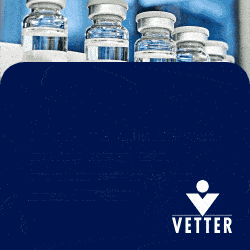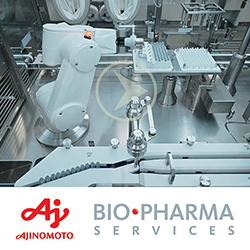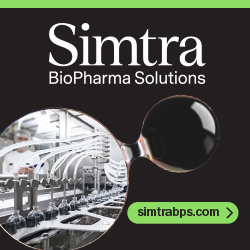12/5/2012
Curis Announces Several Major Announcements
Curis, Inc. recently announced it has licensed from Genentech, a member of the Roche Group, exclusive worldwide rights for the development and commercialization of GDC-0917, a small molecule designed to promote cancer cell death by antagonizing inhibitor of apoptosis (IAP) proteins.
“We are very pleased to have entered into this agreement for GDC-0917, which adds depth to our current pipeline of proprietary targeted anti-cancer agents and further solidifies our relationship with our partner Genentech,” said Dan Passeri, Curis’ President and Chief Executive Officer. “Importantly, we anticipate that the $30-million non-dilutive royalty financing transaction that we also recently announced will provide us with sufficient capital to progress GDC-0917 and our other programs to important development milestones.”
“We value the relationship that we have with Curis, and Genentech is pleased to enter into this agreement,” added James Sabry, MD, PhD, Vice President, Genentech Partnering. “We have been impressed with the results of our recently completed Phase I clinical trial and look forward to Curis’ further development of GDC-0917.”
Genentech has recently completed a Phase I clinical trial of GDC-0917, in which 42 people received daily oral doses of GDC-0917 for 2 weeks, followed by a 1-week rest period. This 21-day cycle is repeated until disease progression or study discontinuation for any other reason. The primary endpoints of the study include evaluating the safety and tolerability and the pharmacokinetics of GDC-0917 in people with solid tumors or lymphoma and determining the maximum-tolerated-dose and a potential recommended dose for further clinical studies. Secondary endpoints include a preliminary assessment of anti-tumor activity of GDC-0917 and evaluating pharmacodynamic markers.
Genentech plans to present full study results at a medical conference in mid-2013. Please refer to www.clinicaltrials.gov for additional study details.
“The results of the Phase I study with GDC-0917 have been encouraging,” commented one of the principal investigators in Genentech’s Phase I clinical study, Dr. Anthony Tolcher, MD, FRCP (C), Director of Clinical Research at South Texas Accelerated Research Therapeutics (START) in San Antonio, TX. “We believe that IAP inhibition could prove to be an important approach in cancer therapy, and we look forward to working with Curis in upcoming clinical studies of this exciting molecule,” he added.
Curis has designated GDC-0917 as CUDC-427 and plans to continue the further clinical development of CUDC-427, both as a single agent as well as in a Phase I clinical trial in combination therapy, which if successful would enable Curis to advance to Phase II combination clinical studies.
Under the terms of the license agreement, Curis will have the sole right and responsibility for all research, development, manufacturing, and commercialization activities related to CUDC-427. Curis will pay Genentech $9.5 million for an up-front license payment and technology transfer costs. In addition, Genentech is entitled to receive milestone payments upon the first commercial sale of CUDC-427 in certain territories and royalties on net sales of CUDC-427.
In addition, Curis separately announced that, subject to the occurrence of certain closing conditions, it will enter into a $30-million debt transaction secured with certain future Erivedge royalties, with an investment fund managed by Pharmakon Advisors. Upon closing, this capital will provide Curis with an important source of funding for the further development of Curis’ proprietary programs, including CUDC-427.
Impairment of programmed cell death or apoptosis often contributes to the formation and progression of cancer, and evasion of apoptosis is one of the primary strategies by which cancer cells develop resistance to anticancer therapies. Inhibitor of apoptosis (IAP) proteins are a family of functionally and structurally related proteins that include X-linked IAP (XIAP), cellular IAPs (cIAP1 and cIAP2), and melanoma IAP (ML-IAP). They confer protection from death-inducing stimuli by exerting a range of biological activities that promote cancer cell survival and proliferation. Some even directly inhibit caspases, critical players in the execution of apoptosis.
Mutations, amplifications, and chromosomal translocations of IAP genes are associated with various solid and hematologic cancer types, and increased IAP expression has been associated with an unfavorable prognosis and poor outcome for patients. As a consequence, IAP proteins are considered promising molecular targets for anticancer therapy.
CUDC-427 is an orally bioavailable small molecule that triggers tumor cell apoptosis by selectively antagonizing IAP proteins. CUDC-427 was designed to mimic the endogenous IAP antagonist mitochondrial protein second mitochondria-derived activator of caspases/direct IAP-binding protein (Smac/DIABLO) that is released into the cytoplasm in response to pro-apoptotic stimuli.
CUDC-427 has demonstrated single-agent and combination anti-tumor activity in mouse xenograft tumor models when administered orally on a daily schedule, and IND-enabling safety studies have shown it to be well tolerated when dosed daily by oral administration, potentially enabling sustained target inhibition.
In October 2010, an open-labeled, uncontrolled, dose-escalation, Phase I clinical trial of CUDC-427 (NCT01226277; IAM4914g) began in patients with refractory solid tumors or lymphoma. The study was designed to assess safety, tolerability, and pharmacokinetics of daily, oral doses of CUDC-427. Data from this study are expected to be presented at an oncology conference in mid-2013.
Curis also provided a bioavailability update on CUDC-101, a first-in-class small molecule drug candidate that has been designed as an inhibitor of histone deacetylase (HDAC), epidermal growth factor receptor (EGFR), and epidermal growth factor receptor 2 (Her2). CUDC-101 is being studied in a Phase I clinical study with an oral formulation in patients with advanced solid tumors as well as in a separate Phase I clinical study with an intravenous (IV) formulation in patients with locally advanced head and neck cancer. Curis has determined that the bioavailability observed in the first cohort of patients from the Phase I clinical study of the oral formulation of CUDC-101 were too low to warrant the enrollment of additional patients in the current study.
The company is evaluating various options for the further exploration of the oral formulation of CUDC-101, including those that may increase the bioavailability of CUDC-101, pursuing alternative oral formulations or routes of administration, as well as backup molecules whose chemical properties may be more amenable to oral administration.
And Curis also announced the FDA has provided its permission to proceed to Phase I testing of CUDC-907, a first-in-class PI3K and HDAC inhibitor, following its investigational new drug (IND) filing last month. Curis expects to initiate this study in late 2012 or early 2013.
Finally, Curis also announced its licensee Debiopharm continues to expand its development of Hsp90 inhibitor Debio 0932. In addition to its ongoing Phase Ib study in solid tumor cancers and its ongoing Phase I/II clinical trial in advanced non-small cell lung cancer (NSCLC), Debiopharm has determined that it plans to initiate a separate Phase I/II clinical trial with Debio 0932 in combination with Everolimus in renal cell carcinoma patients in the second half of 2013. Curis is eligible to receive a milestone payment from Debiopharm upon the treatment of the fifth patient of the Phase II portion of this study. For more information, visit www.curis.com.
Governor Jindal, AgraTech International Announce New Chitosan Facility
Governor Bobby Jindal and AgraTech International Inc. Chairman Richard DeMarco recently announced the company will renovate a former Opelousas bottling facility, creating 50 new direct jobs and making a $10-million capital investment. The biotech venture will convert seafood shell waste into commercial products for the automotive, defense, and medical sectors. The new direct jobs will pay an average salary of $50,000, plus benefits, and LED estimates the project will result in an additional 51 new indirect jobs.
Raw shrimp, crawfish, and crab shells will be converted into chitosan for products ranging from water-repellant coatings on windshields to enhanced sunscreen lotions, nasal sprays to treat nosebleeds, and dental membranes for implant surgery. In addition to a 37,500-square-foot facility in Opelousas, LA, AgraTech International will establish a research partnership with the University of Louisiana at Lafayette.
Governor Jindal said, “This announcement is great news for Acadiana, and our entire state. The new facility will mill shrimp, crawfish, and crab shells – waste that previously had to be discarded and added an additional cost to Louisiana’s seafood industry. Turning a negative into a positive for the Louisiana economy, AgraTech will convert these seafood shells into chitosan that will be used in new products for the medical, automotive, and defense industries. AgraTech could have invested in other states, but chose Louisiana because of our strong business climate, incomparable workforce, and our world-class seafood industry. The bottom line is that Agratech’s decision to invest here is not only good news for our economy and our workers, but also our seafood industry and for our higher education community.”
Based in New Jersey, AgraTech International secured a long-term lease on space at the former Yoo-Hoo chocolate drink bottling plant that closed 3 years ago in Opelousas. The site places the company within close reach of a 100-million-pound annual supply of crustacean waste. AgraTech also will conduct research activity at the University of Louisiana’s College of Engineering in Lafayette, where the company will provide instruction and research assistance to students and faculty in exchange for lab space.
“Chitosan production is a totally green endeavor: It is a natural, renewable, nontoxic, and nonhazardous, biodegradable product,” said Mr. DeMarco, who’s also President and CEO of AgraTech International. “AgraTech will be the sole domestic commercial supplier of high-quality chitosan. From our Opelousas location, the company intends to remain in the vanguard of chitosan research, developing new chitosan-based products.”
In addition to medical applications, AgraTech will manufacture and license the technology to produce a chitosan-based, water-repellant coating permanently bonded to glass. Water-barrier applications in the automotive, construction, defense, and optics sectors hold significant potential in what the company estimates is a more than $36-billion market. AgraTech and the University of Louisiana at Lafayette are negotiating a research partnership agreement to enhance market applications for the company and research opportunities for the campus.
“The university is always seeking innovative partnerships to enhance the economic diversity and development of the state,” said President Joseph Savoie of the University of Louisiana at Lafayette. “The scientific work conducted by AgraTech complements research by our faculty. Arrangements such as this are beneficial for business, the university, the region, and the state. When companies such as AgraTech have a campus presence, it enhances our ability to engage undergraduates, as well as graduate students, in the types of research that will lead to the creation of more jobs and further economic opportunities.”
Acadiana Economic Development and the St. Landry Economic Industrial Development District helped recruit AgraTech International to the Acadiana Region, and the company is expected to utilize Louisiana’s R&D Tax Credit, Enterprise Zone, and Industrial Tax Exemption incentives.
“The seafood industry has long been an important part of Acadiana’s economy, providing a source of income for the fishermen and the seafood processors and served up as a main ingredient in our top-quality restaurants,” said Chairman Mike Tarantino of Acadiana Economic Development. “This industry has always sought avenues that will bring added value to their products. By utilizing a costly industry waste product, AgraTech brings a unique feature that makes sense both economically and environmentally.”
Renovation and equipping of the facility will begin in early 2013, with commercial operations planned by the end of the second quarter 2013. AgraTech will hire 10 people in its first year and increase its staff to 50 employees within 5 years.
AgraTech International Inc. has developed a biotech enterprise focused on chitosan, a natural material processed from crustacean shell waste (shrimp, crawfish, crab). Demand for chitosan continues to outpace supply as new uses for chitosan are being discovered and new chitosan-based products are developed. AgraTech has developed an efficient, flexible process for manufacturing high-purity chitosan that allows for multiple product applications and eliminates substantial hauling fees for disposal of the waste. For more information, visit www.agratech.net.
Hovione & Solvias Announce Drug Solubility Collaboration
Hovione and Solvias recently announced the establishment of a collaboration focused on the development and GMP supply of pharmaceutical co-crystals. This strengthens Hovione’s expertise and experience in overcoming drug delivery challenges and also the supply of GMP materials from Phase I to commercial scale, with Solvias’ excellence in solid state chemistry.
Hovione offers a series of innovative particle engineering technologies focused on amorphous solid dispersions, crystal design, and reduction and control of particle size. The collaboration provides Hovione access to Solvias’ co-crystallization expertise and capabilities, thus reinforcing and complementing the crystal design solutions to overcome poor bioavailability and other drug delivery challenges. Solvias continues its strategy of partnering to enhance access to its solid-state solutions.
“We are delighted to announce this collaboration with Solvias, increasing the breadth of drug delivery solutions through our Particle Design offering. Solvias has a tremendous reputation for science, quality, and expertise in crystal design for improved drug performance. This agreement reinforces our strategy of combining strengths with innovative companies to allow our customers a seamless and integrated approach to their drug delivery challenges,” said Dr. Colin Minchom, Hovione’s Vice President of Particle Design.
Dr. Martina Diekmann, Solvias’ Global Head of Business Development Analytics, added, “Solvias is delighted to work with Hovione. In establishing this agreement with Hovione, we are able to generate added value for our customers and to help them solving their drug delivery requirements.”
Hovione is a global company with over 50 years of experience in Active Pharmaceutical Ingredient and Drug Product Intermediate development and compliant manufacture. With four FDA-inspected sites in the US, China, Ireland, and Portugal, the company focuses on the most demanding customers in the most regulated markets.
For more information about Hovione, please visit www.hovione.com or contact Marketing & Communications, Isabel Pina, + 351 21 982 9362, e-mail: ipina@hovione.com.
Solvias is a privately held company located in Basel, Switzerland, with recognized high standards as a service provider to the pharmaceutical industry with full cGMP compliance (FDA, Swissmedic). With over 250 highly qualified employees, Solvias supports the research and development of new drug substances and drug products for pharmaceutical and life science companies worldwide. For more information, contact Tim Senn, Marketing Communication Manager, at tim.senn@solvias.com or +41 61 845 61 41.
Tekmira Acquires Worldwide License to Novel RNAi Technology
Tekmira Pharmaceuticals Corporation recently announced it has obtained a worldwide, non-exclusive license to a novel RNAi payload technology called Unlocked Nucleobase Analog (UNA) from Marina Biotech, Inc. for the development of RNAi therapeutics.
UNA technology can be used in the development of RNAi therapeutics, which treat disease by silencing specific disease-causing genes. UNAs can be incorporated into RNAi drugs and have the potential to improve them by increasing their stability and reducing off-target effects.
“Our license to Marina’s UNA technology expands and diversifies our foundation of technologies that enable us to develop RNAi therapeutics. With Tekmira’s leading LNP delivery technology, a strong balance sheet, and access to multiple RNAi payload technologies, we are well positioned to aggressively advance multiple products into human clinical trials,” said Dr. Mark J. Murray, Tekmira’s President and CEO.
“We intend to leverage our expertise in LNP delivery and our broad understanding of therapeutic RNA payload design to optimize the use of UNA in our development pipeline, as well as provide pharmaceutical partners the opportunity to license UNAs combined with our LNP delivery technology to develop RNAi therapeutics,” added Dr. Murray.
Under the license agreement, Tekmira has received worldwide, non-exclusive rights to Marina Biotech’s UNA technology for the development of RNAi therapeutic products, and Marina will receive an upfront payment plus milestone and royalty payments on products developed by Tekmira that use UNA technology. Financial terms of the license agreement were not disclosed.
Unlocked Nucleobase Analogs (UNA) are acyclic ribonucleoside analogs in which the bond between C2′ and C3′ atoms is broken. This change in sugar structure renders this nucleoside analog very flexible. This characteristic is in contrast to the widely used locked nucleosides that lock the sugar conformation by a bridged bond between C2′ and C4′ atoms.
The flexible nature of UNA reduces the binding affinity between two strands of an RNAi drug and gives unique characteristics to its gene-silencing abilities. Marina Biotech has demonstrated that UNA has the potential to improve RNAi therapeutics by increasing stability and reducing sense and antisense mediated off-target effects while retaining potency.
Tekmira believes its LNP technology represents the most widely adopted delivery technology for the systemic delivery of RNAi therapeutics. Tekmira’s LNP platform is being utilized in multiple clinical trials by both Tekmira and its partners. Tekmira’s LNP technology (formerly referred to as stable nucleic acid-lipid particles or SNALP) encapsulates siRNAs with high efficiency in uniform lipid nanoparticles that are effective in delivering RNAi therapeutics to disease sites in numerous preclinical models.
Tekmira’s LNP formulations are manufactured by a proprietary method which is robust, scalable, and highly reproducible, and LNP-based products have been reviewed by multiple FDA divisions for use in clinical trials. LNP formulations comprise several lipid components that can be adjusted to suit the specific application.
Tekmira Pharmaceuticals Corporation is a biopharmaceutical company focused on advancing novel RNAi therapeutics and providing its leading lipid nanoparticle delivery technology to pharmaceutical partners. Tekmira has been working in the field of nucleic acid delivery for over a decade and has broad intellectual property covering LNPs. For more information, visit www.tekmirapharm.com.
Selecta Biosciences & Sanofi Sign Global Collaboration
Selecta Biosciences, Inc. recently announced it has entered into a strategic global collaboration with Sanofi to discover highly targeted, antigen-specific immunotherapies for life-threatening allergies. Under the agreement, Sanofi obtains an exclusive license to develop an immunotherapy designed to abate acute immune responses against a life-threatening food allergen and an option to develop two additional candidate immunotherapies for allergies each to a specific food or aeroallergen.
The products resulting from this collaboration will leverage Selecta’s proprietary Synthetic Vaccine Particle (SVP) platform, which has unique capabilities to engineer nanoparticles with the ideal structure and composition to produce immune tolerance by balancing the overactive response to specific allergy-causing antigens.
Under the terms of the agreement, Selecta is eligible to receive several preclinical, clinical, regulatory, and sales milestones totaling $300 million per allergen indication for up to three immunotherapy candidates contemplated by this collaboration. Selecta is also entitled to up to double-digit tiered royalties as percentage of product net sales for each commercialized immunotherapy.
As part of the research alliance, Sanofi will work together with Selecta to design antigen-specific immunotherapies that meet unmet needs as defined by Sanofi for applications where Selecta’s technology can offer a new therapeutic approach for life-threatening and other severe allergies. Under the terms of the agreement, Sanofi will have access to Selecta’s proprietary Synthetic Vaccine Particle platform that is designed to create robust antigen-specific immune responses for superior immunotherapy effectiveness. This collaboration is aligned with Sanofi’s strategic focus areas in immunology and leverages Sanofi’s Boston-based research and development capabilities.
“We are very pleased that Sanofi, a global leader in vaccines and immunology is entering into a partnership with Selecta to develop and commercialize products from our immunotherapy platform,” said Werner Cautreels, PhD, Selecta’s President and CEO. “In allergies, as well as auto-immune diseases, organ transplantation, and protein replacement therapies, there is a lack of specific, effective and safe treatments to prevent undesired immune reactions. Selecta’s SVP technology can restore balance to dysregulated immune systems by producing immune tolerance to specific antigens. Our approach addresses the underlying causes of these diseases and thereby makes advances beyond today’s symptomatic treatments and allergen avoidance strategies.”
Selecta Biosciences, Inc. is a clinical-stage biopharmaceutical company developing an entirely new class of targeted vaccines that induces an antigen-specific immune activation or antigen-specific immune tolerance for therapeutic and prophylactic applications. Selecta was founded based on complementary research by three academic pioneers, the nanotechnology innovations of Professors Robert Langer and Omid Farokhzad combined with the immunological insights of Professor Ulrich von Andrian.
Selecta’s proprietary Synthetic Vaccine Particle platform creates a new paradigm in vaccine development, enabling completely new therapeutic and prophylactic applications while offering the potential of improved efficacy and safety profiles. Selecta’s fully synthetic engineering of novel vaccines offers a number of compelling benefits, including flexible modular vaccine design and accelerated development timelines using robust manufacturing processes. Selecta’s SVP platform technology is readily adaptable to enable diverse vaccines and immunotherapies. For more information, visit www.selectabio.com.
New Technology for Producing Thermostable Vaccines
Bend Research Inc., PATH, and Fraunhofer USA Center for Molecular Biotechnology (FhCMB) recently announced the development of a new technology for the production of thermostable vaccines. Utilizing novel formulation and spray-drying processing methods, the technology has enabled scientists at Bend Research, PATH, and FhCMB to develop a spray-dried influenza vaccine product that is stable at 50°C for over 2 months. The technology can also be applied to emerging influenza and other vaccines.
Thermostable influenza vaccines hold promise for improving the pandemic preparedness of national immunization programs by extending product shelf-life, decreasing the cost of vaccine stockpiling, and easing the deployment of vaccines against pandemic influenza strains in the United States or developing countries. Thermostable vaccines can also help to ensure vaccine potency in remote areas of the world with limited to no electricity for cold chain refrigeration.
“As an industry leader in spray-drying and the formulation of biotherapeutics, we are excited to work with PATH and FhCMB to address the unmet need for thermostable flu vaccines in developing countries,” said Rod Ray, CEO of Bend Research Inc. “This work aligns with our mission to advance the best new medicines to patients.”
Spray-drying processing methods are well-established for the development and manufacture of pharmaceuticals and dry food products but have rarely been applied to vaccines – until now. The next phase of technical work for the Bend Research Inc., PATH, and FhCMB partnership includes developing a commercially viable process for producing thermostable influenza vaccines using this breakthrough technology.
All research activities under the partnership are supported with a grant from the Defense Threat Reduction Agency of the United States Department of Defense and leverages earlier proof-of-concept work advanced by PATH.
For more than 35 years, Bend Research Inc. has worked with clients to create value by advancing new medicines that improve human health and to solve their most difficult scientific and technical problems. This success is based on the company’s ability to develop, advance, and commercialize pharmaceutical technologies, which grow from a solid base of scientific and engineering fundamental understanding. For more information, visit www.bendres.com.
PATH is an international nonprofit organization that transforms global health through innovation. PATH takes an entrepreneurial approach to developing and delivering high-impact, low-cost solutions, from life-saving vaccines and devices to collaborative programs with communities. Through its work in more than 70 countries, PATH and its partners empower people to achieve their full potential. For more information, please visit www.path.org.
FhCMB develops safe, rapid, and economical alternatives for vaccine production. FhCMB has a fully functioning GMP pilot-scale production facility and has the complete suite of capabilities necessary for product development services from target expression through Phase I and II clinical trials.
Total Page Views: 2299

















